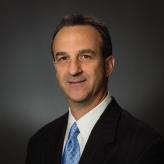2nd Circuit: Reference to John 3:16 on Vt. license plate is protected free speech

NEW YORK — The U.S. Court of Appeals for the 2nd Circuit issued a ruling Friday that strikes down a Vermont motor vehicles statute that prohibits personalized license plates with messages that refer to “religion” or “deity.” The court issued its ruling in the case of Shawn Byrne, whose application for a personalized plate with the letters and number “JN36TN”--a reference to the Bible verse John 3:16--was denied because it “refers to deity.” Alliance Defense Fund attorneys filed suit on Byrne’s behalf against Vermont Department of Motor Vehicles officials in 2005.
Although the DMV has approved applications for other plates that use names and numbers referring to a wide array of topics, including religion and secular belief systems, it denied Byrne’s application.
“Christians shouldn’t be censored from expressing their beliefs while others are freely allowed to express theirs,” said ADF Senior Counsel David Cortman. “The 2nd Circuit rightly concluded that it’s unconstitutional for the government to decide that car owners can only identify who they are and what they believe on personalized plates if their identity and beliefs are non-religious.”
“There’s no reason whatsoever to single out a religious message for discrimination,” added ADF Legal Counsel Jeremy Tedesco. “The DMV cannot send the message that religious speech is inferior to other speech by prohibiting personalized plates with Christian references while allowing other points of view. That’s classic viewpoint discrimination, which is unconstitutional.”
In April 2004, Byrne submitted his application for a specialty plate with references to the Bible verse John 3:16 as his choices. The following month, the DMV sent him a letter stating that the messaging on his application was “deemed to be a combination that refers to deity and has been denied based on that reason.” Byrne unsuccessfully appealed the denial, which an administrative law judge upheld based on a state statute that prohibits combinations referring to “deity.”
In its opinion, the 2nd Circuit said that U.S. Supreme Court guidance concerning bans on religious messages “has been both extensive and clear.” The court wrote, citing other cases in which ADF has had involvement, “We simply find…that Vermont’s ban on all religious messages in a forum it has otherwise broadly opened to comment on a wide variety of subjects, including personal philosophy, affiliation, and belief, serves not to restrict content but instead to discriminate against ‘a specific premise, [] perspective, [and] standpoint,’ and, as such, is impermissible.”
ADF attorneys appealed to the 2nd Circuit in October 2007. The court heard oral argument in Byrne v. Rutledge in December 2008. Anthony Duprey, one of more than 1,800 attorneys in the ADF alliance, is serving as local counsel in the case.
- Pronunciation guide: Tedesco (tuh-DES’-co)
ADF is a legal alliance of Christian attorneys and like-minded organizations defending the right of people to freely live out their faith. Launched in 1994, ADF employs a unique combination of strategy, training, funding, and litigation to protect and preserve religious liberty, the sanctity of life, marriage, and the family.
Related Profiles


